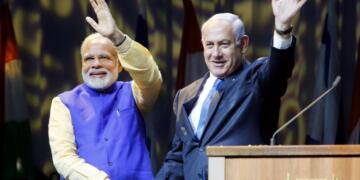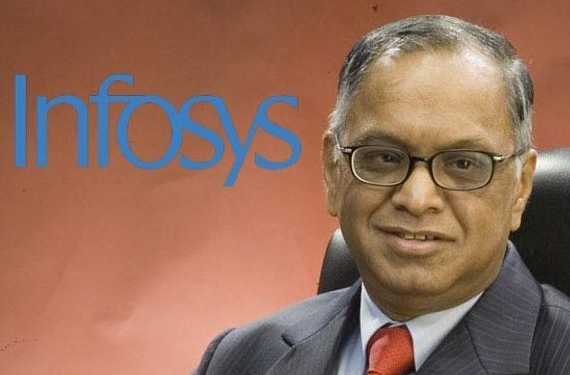N R Narayana Murthy is among the people who revolutionized Indian IT industry in short span of time. Today he will be celebrating his 73rd birthday. Born in Karnataka almost a year before independence, Murthy is appreciated by millions of people for creating many high paying jobs in a country where per capita is among lowest in the world. The success story of Murthy is interconnected with the story of the Indian economy in many ways. Born a year before independence, he grew up in an intellectual sphere which was dominated by Nehruvian Socialism. His father, a high school teacher who retired as District Education Officer was staunchly Nehruvian and leftist. The town of Mysore in the 50s and 60s was a place where Nehru, USSR, and anti-Americanism were middle ideals like any other part of the country.
Narayana Murthy completed his graduation from National Institute of Engineering (NIE), Mysore in electrical engineering and Master from IIT Kanpur- a typical education for any smart middle-class student in 1960s and 1970s. After graduating from IIT Kanpur, Murthy took a job in IIM Ahmedabad as chief systems officer at a salary of Rs 800. The institute was installing latest computer system and it was led by Vikram Sarabhai as its first chairman and Ravi Mathai as its first director. In the dynamic environment of IIM-A, Narayana Murthy started solving real-world problems using the latest computer system and produced academic research papers which he presented in academic conferences. In one of such conference in Italy, he bagged a project in Paris. After finishing the three-year stint in Paris, he wanted to return to India but before that, he took a yearlong backpacking trip across Europe. At that time people who got an opportunity in foreign countries did not use to return to India due to the socialist environment in the country. So, the decision of Murthy was courageous and had patriotic undertones in it. The time in Paris and the trip across Europe influenced the political philosophy of Murthy. “I came to realize the only way to solve the country’s problems was by creating jobs. What was required is equality of opportunity which is part of the capitalist model, not equality of outcomes, which was the communist ideal,” said Murthy in an interview. So now Murthy wanted to be an entrepreneur, with a company that would work with private sector companies as his clients.
In 1976, he started his first venture called Softronics but it failed because Indian companies were not ready for heavy duty computer algorithms. The failure of Softronics took Murthy to his first corporate sector job at Patni Computer System in Pune. But a comfortable job and a failed stint could not stop Murthy from taking another risk to start a new company called Infosys in 1981. He remembers that the environment in the country in the 1980s was extremely business-unfriendly. He recalls waiting a year to get a telephone connection and three years for a license to import a computer. But the struggles of Murthy paid off as in initial days the company was dependent on developing customized software solutions for foreign companies. Slowly the business environment in the country started changing in the late 80s and early 90s. The company grew exponentially in these years and offered Initial Public Offering (IPO) with an offer price of 95 (equivalent to 490 or US$7.10 in 2017) per share against book value of 20 (equivalent to 100 or US$1.50 in 2017) per share.
Today Infosys employs more than 2 lakh people across the world and have a market capitalization above 42 billion. The values of Narayana Murthy emphasizes on are generosity, simplicity, and transparency and embedded these values in the company. His wife runs Infosys foundation to support underprivileged people of the society. Infosys supports many academic institutions and labs, runs a global network of research labs called Infosys Labs. According to Murthy money is not important to him, “I gave Nandan, Kris, and Raghavan a 15 percent stake each in Infosys, though they had only two years of experience then and were some eight levels below me. I gave Shibu, Dinesh, and Ashok another 10 percent each. Money has never been important to me” said Murthy in an interview. The life of Murthy and his love for country is an inspiration for thousands of entrepreneurs of the country. His journey from being ‘Nehruvian Socialist‘ to a ‘Compassionate Capitalist’ represents the change in the political economy of India. His struggles in initial years due to bureaucratic hurdles give us a lesson about trimming government interference to a minimum level. The rising global stature of Infosys represents the rise of the Indian economy on the world stage. So, the journey of Narayana Murthy and Infosys epitomizes the journey of post-independence India.























